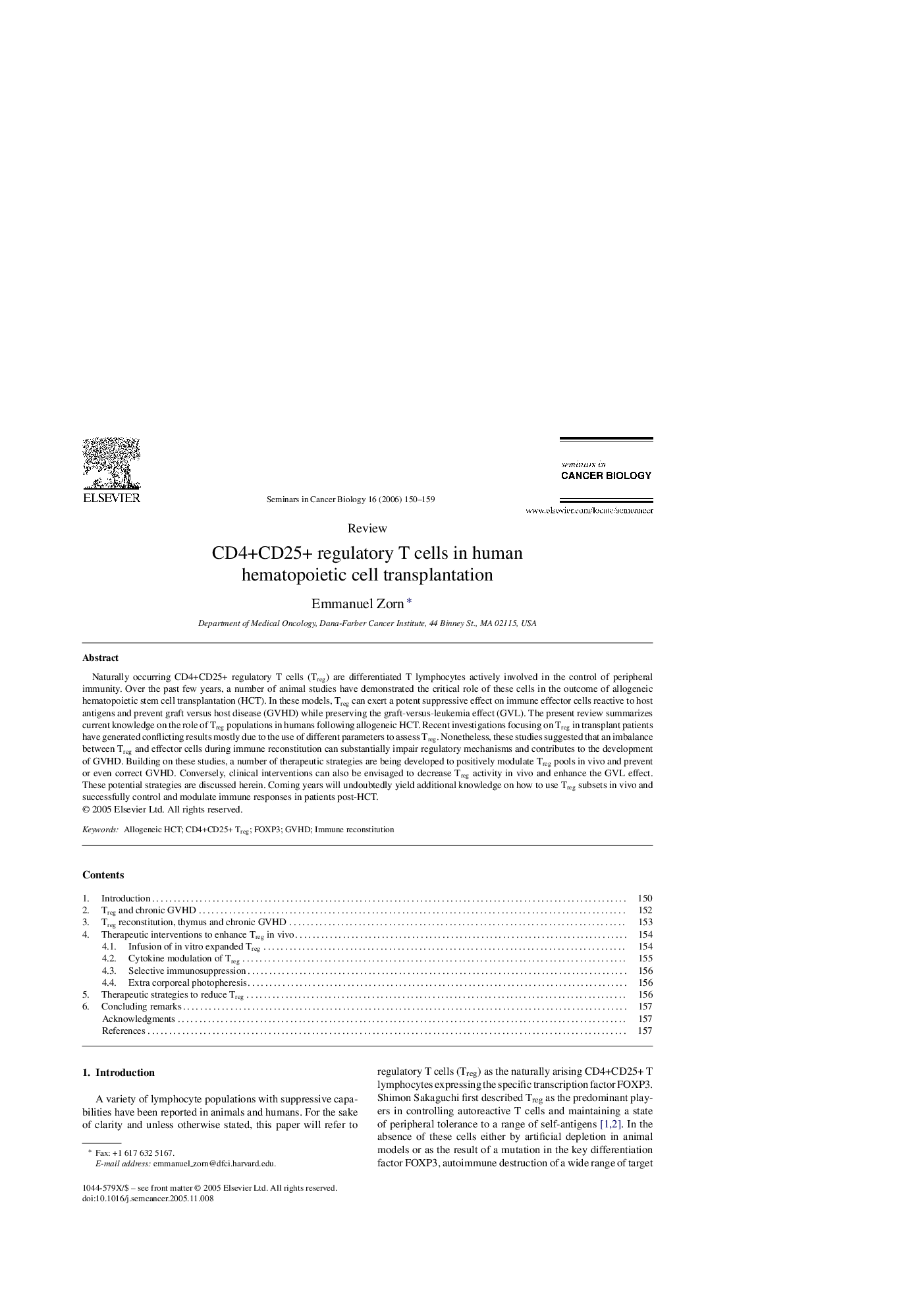| Article ID | Journal | Published Year | Pages | File Type |
|---|---|---|---|---|
| 2024131 | Seminars in Cancer Biology | 2006 | 10 Pages |
Naturally occurring CD4+CD25+ regulatory T cells (Treg) are differentiated T lymphocytes actively involved in the control of peripheral immunity. Over the past few years, a number of animal studies have demonstrated the critical role of these cells in the outcome of allogeneic hematopoietic stem cell transplantation (HCT). In these models, Treg can exert a potent suppressive effect on immune effector cells reactive to host antigens and prevent graft versus host disease (GVHD) while preserving the graft-versus-leukemia effect (GVL). The present review summarizes current knowledge on the role of Treg populations in humans following allogeneic HCT. Recent investigations focusing on Treg in transplant patients have generated conflicting results mostly due to the use of different parameters to assess Treg. Nonetheless, these studies suggested that an imbalance between Treg and effector cells during immune reconstitution can substantially impair regulatory mechanisms and contributes to the development of GVHD. Building on these studies, a number of therapeutic strategies are being developed to positively modulate Treg pools in vivo and prevent or even correct GVHD. Conversely, clinical interventions can also be envisaged to decrease Treg activity in vivo and enhance the GVL effect. These potential strategies are discussed herein. Coming years will undoubtedly yield additional knowledge on how to use Treg subsets in vivo and successfully control and modulate immune responses in patients post-HCT.
